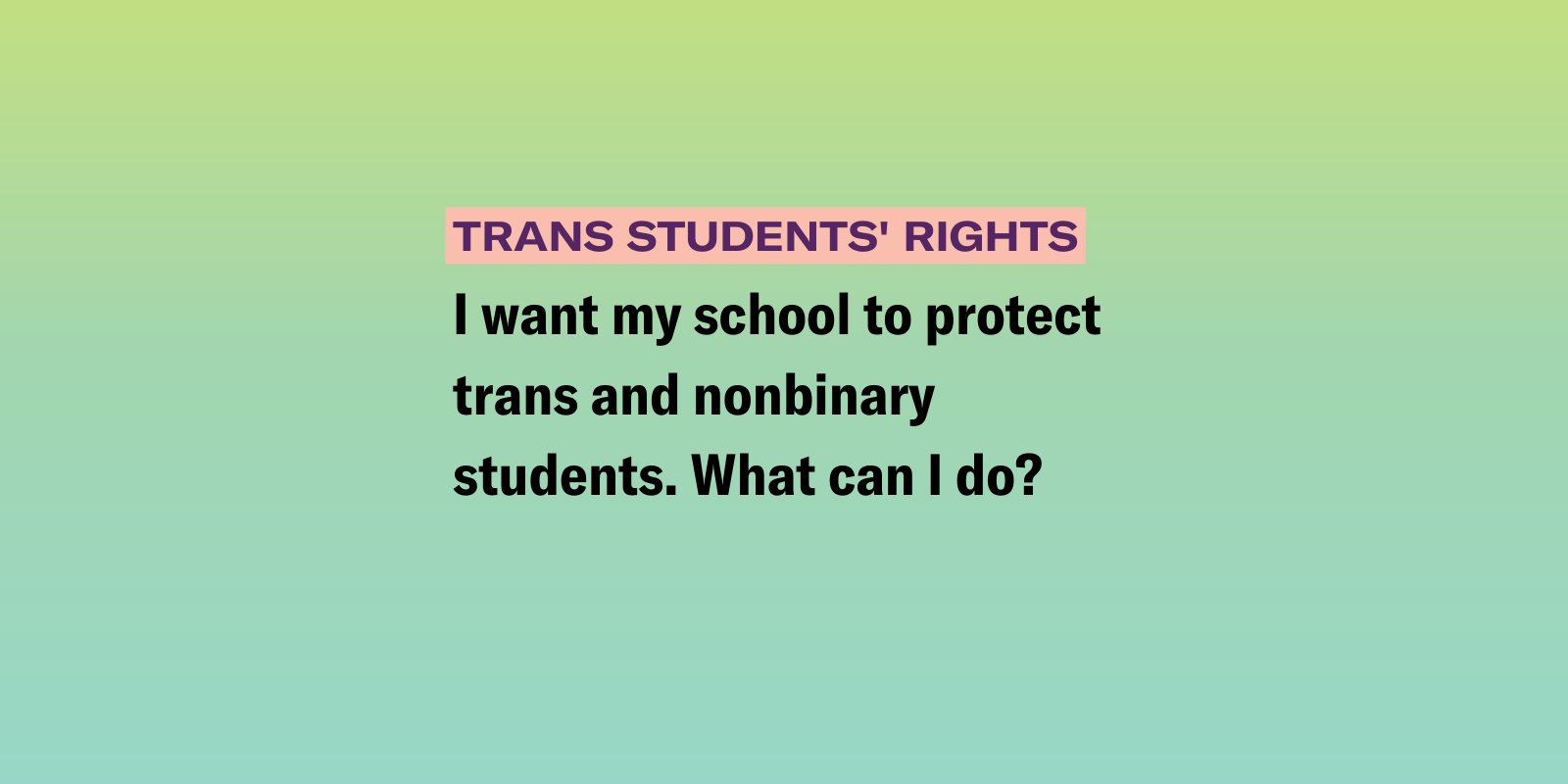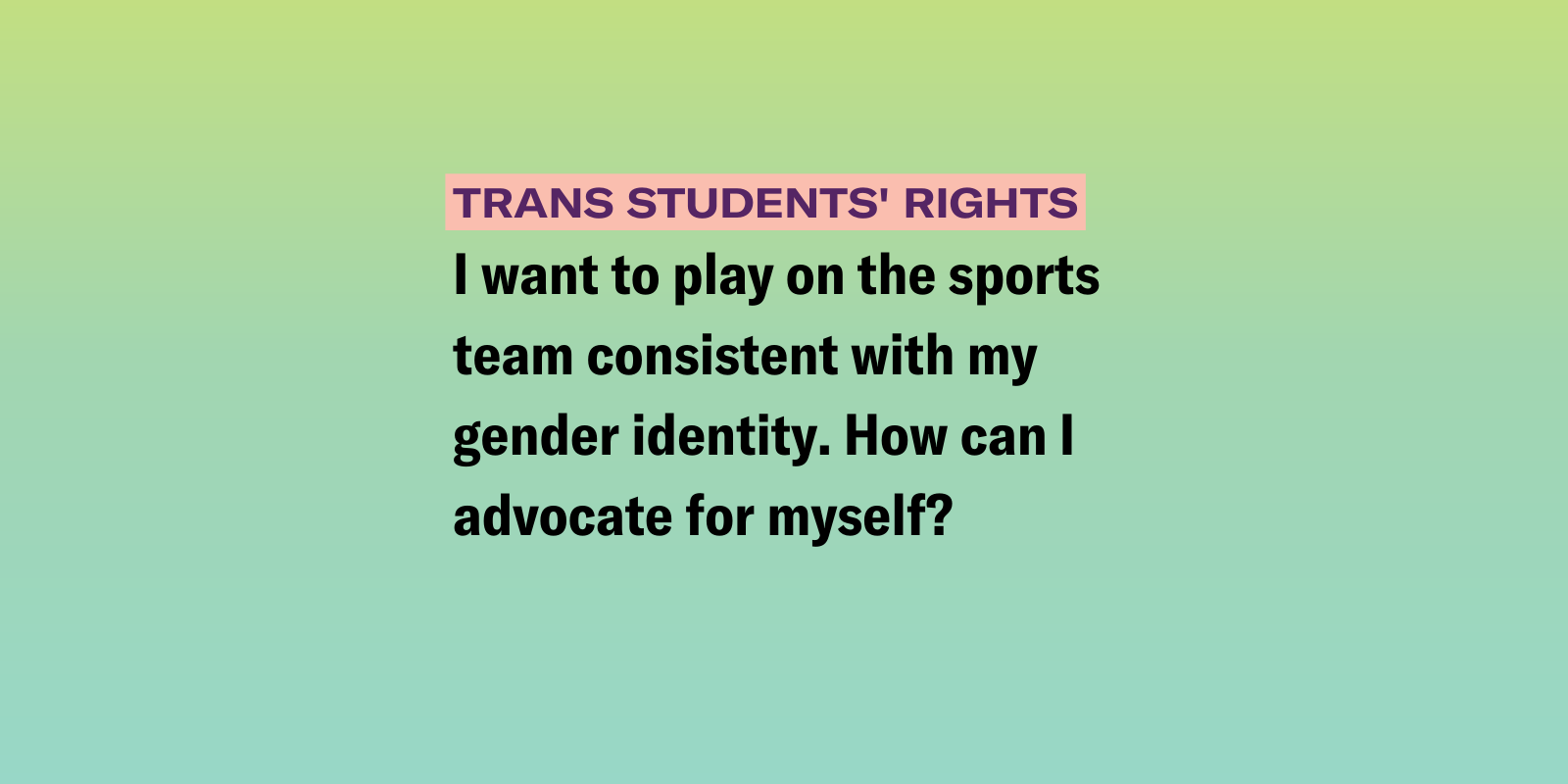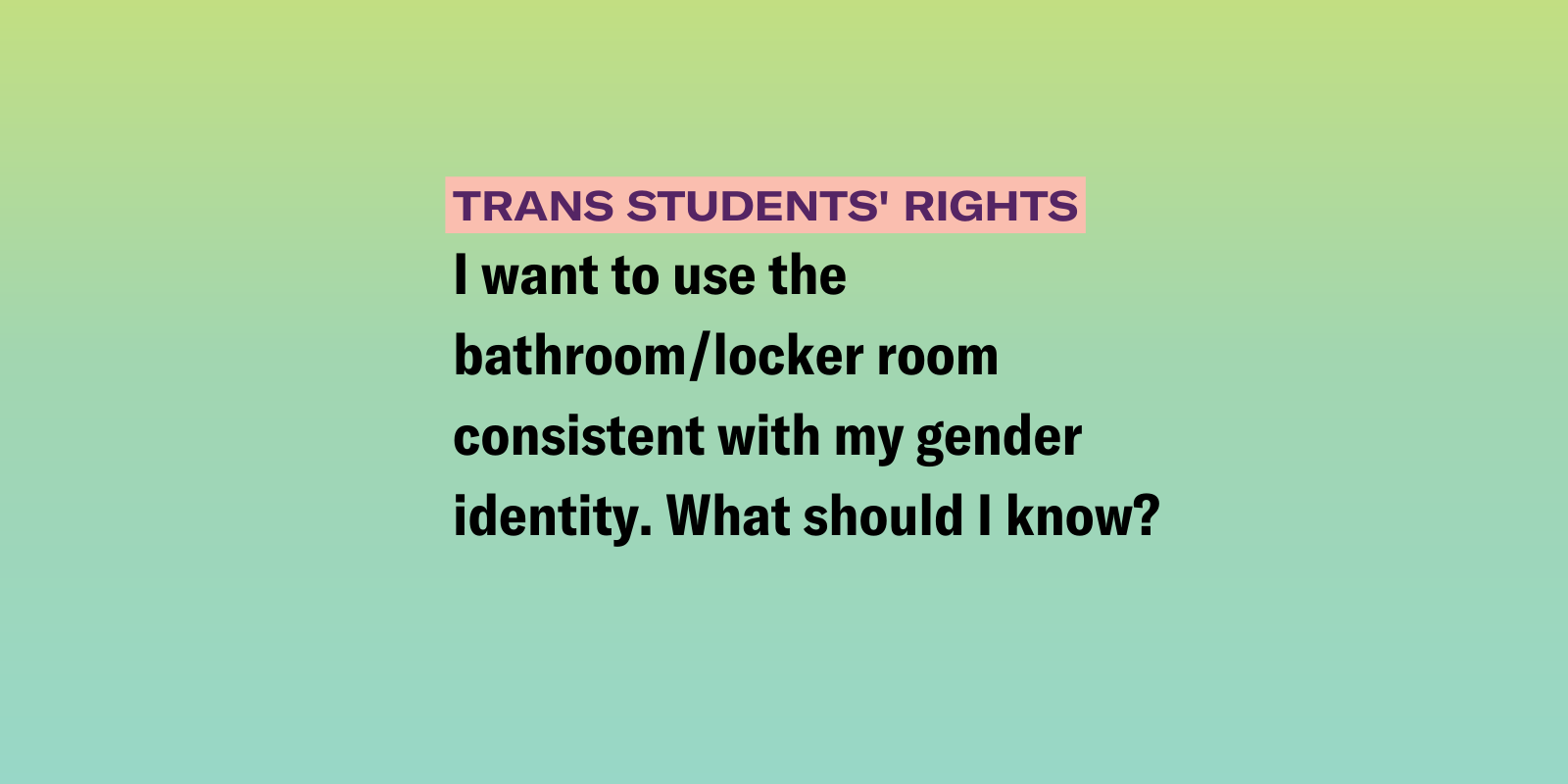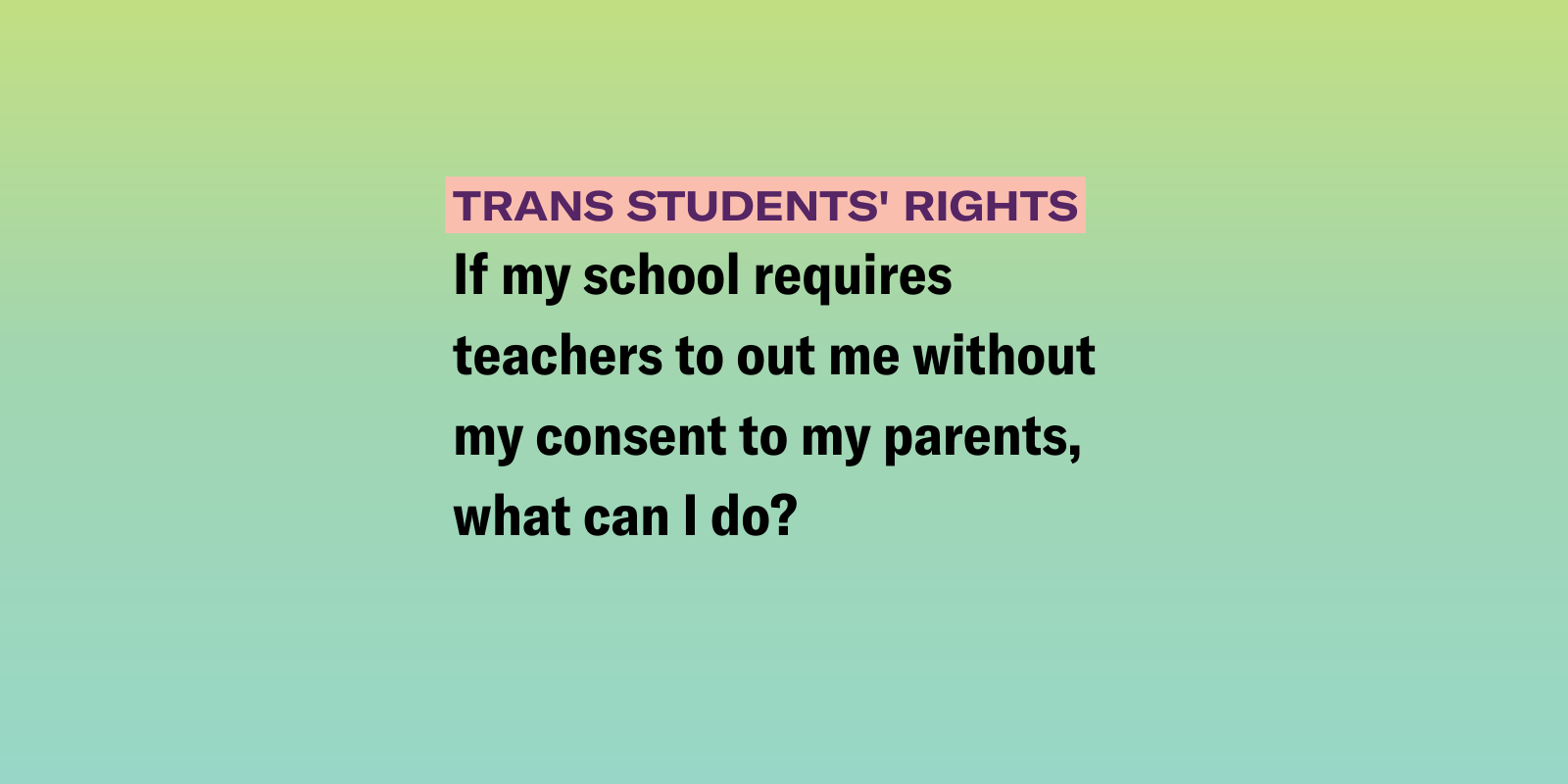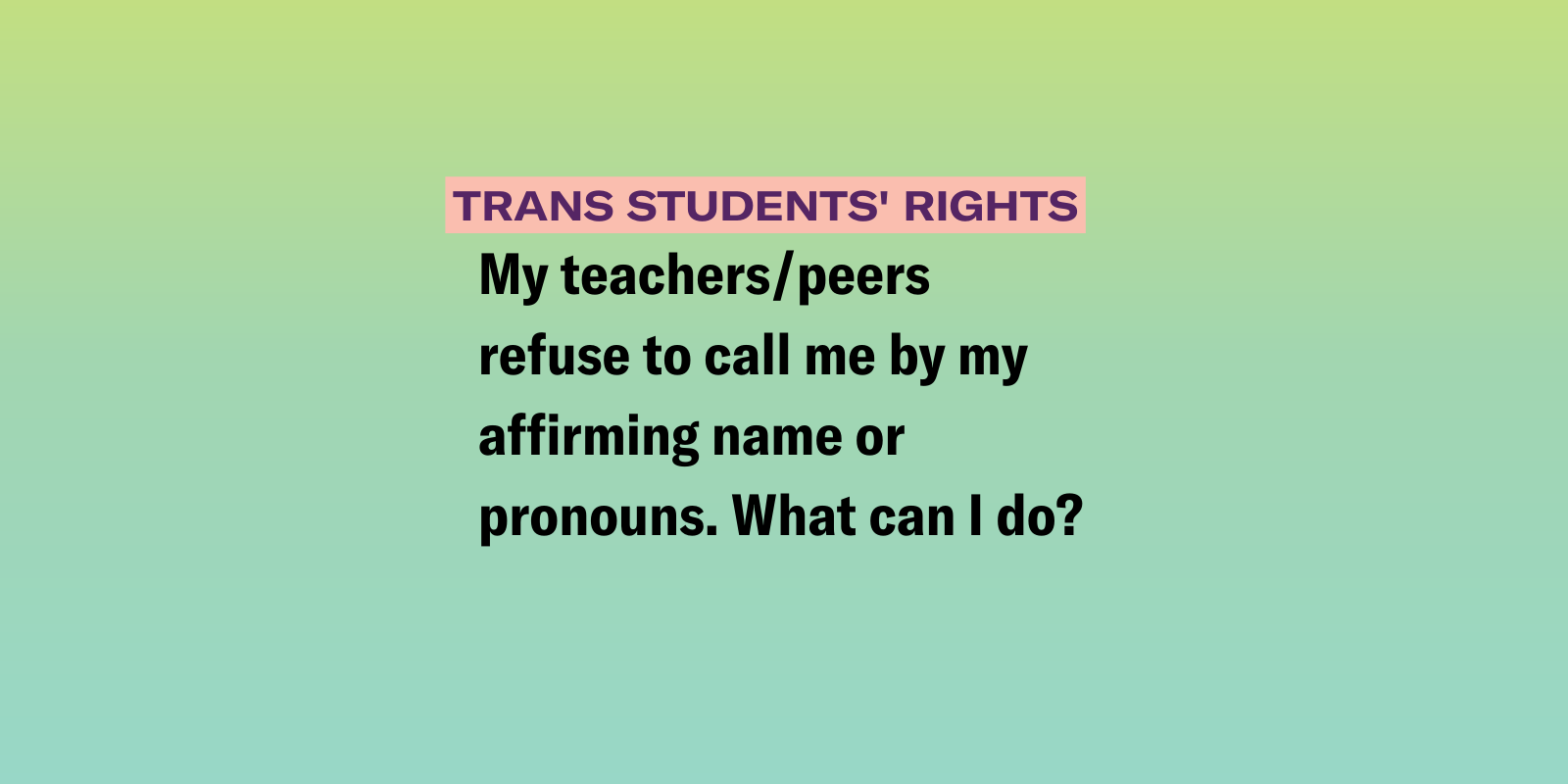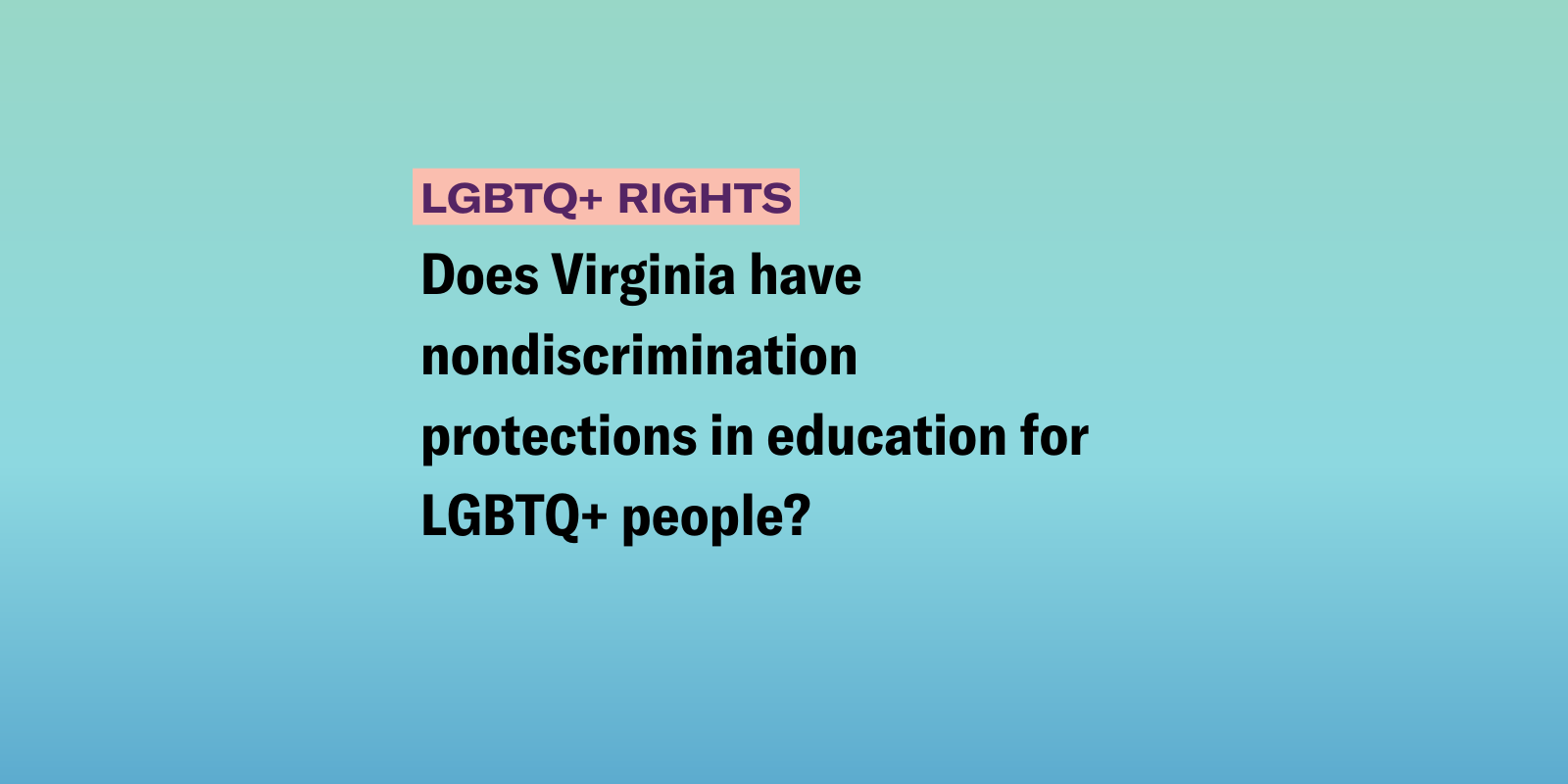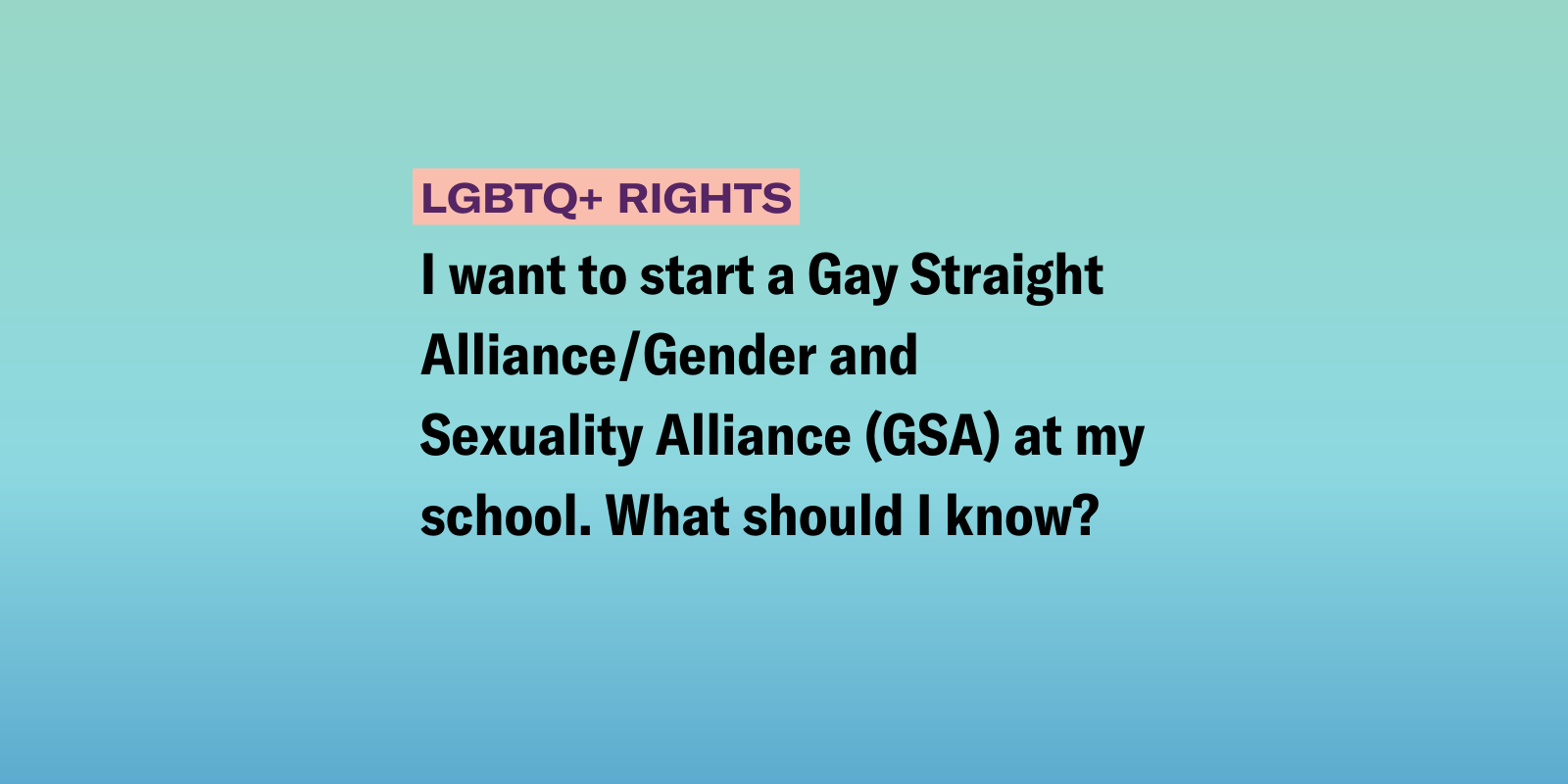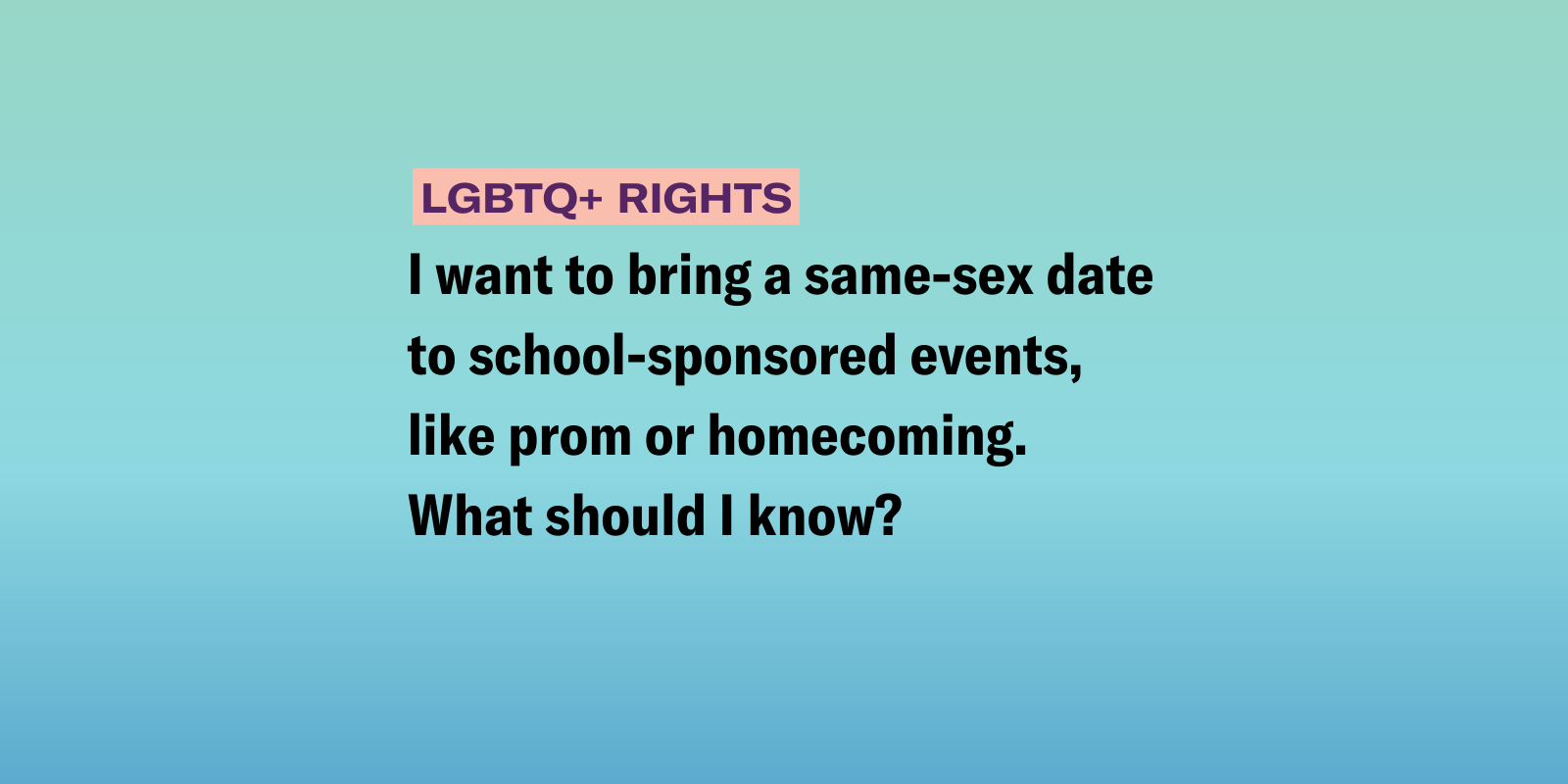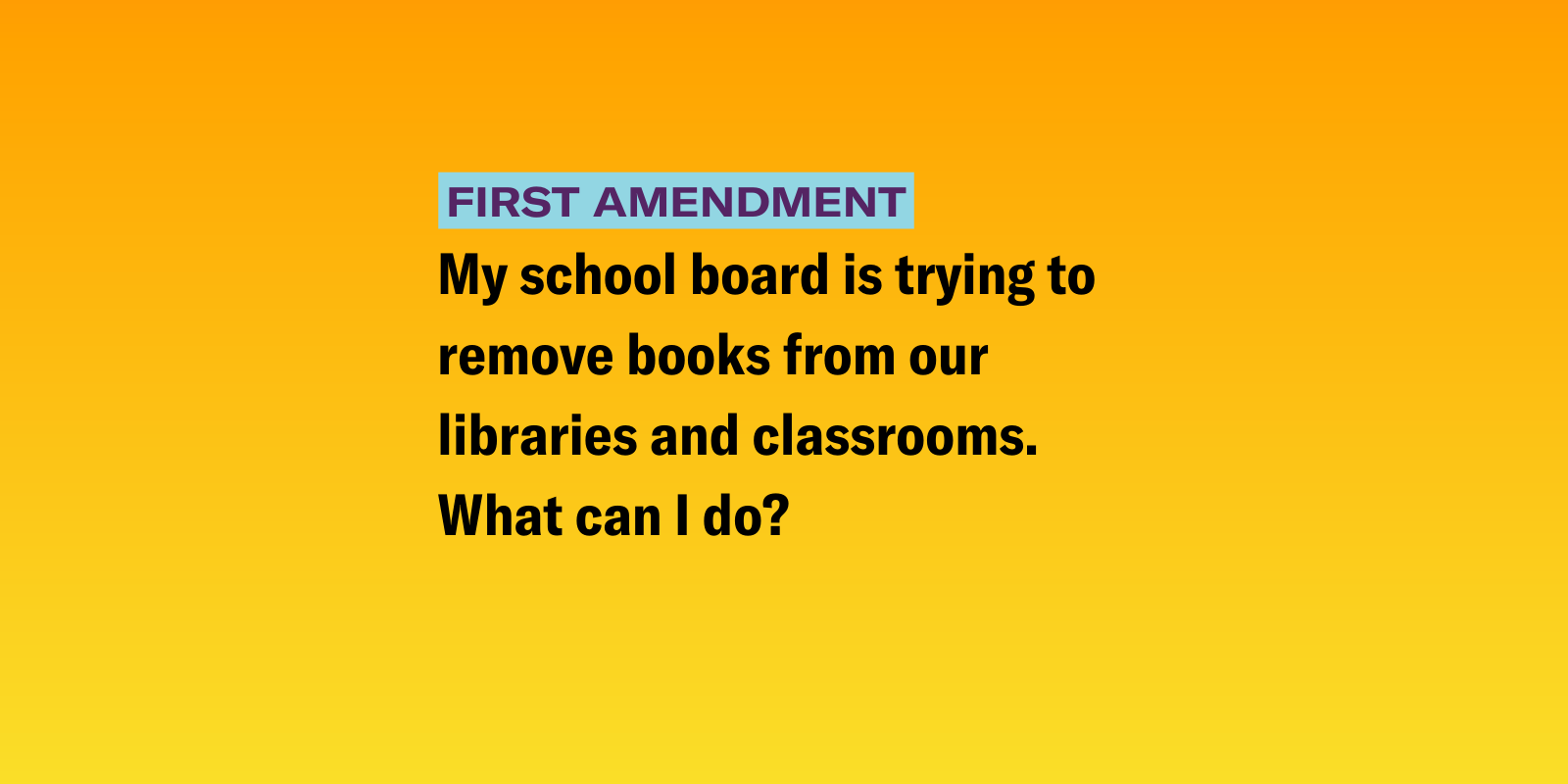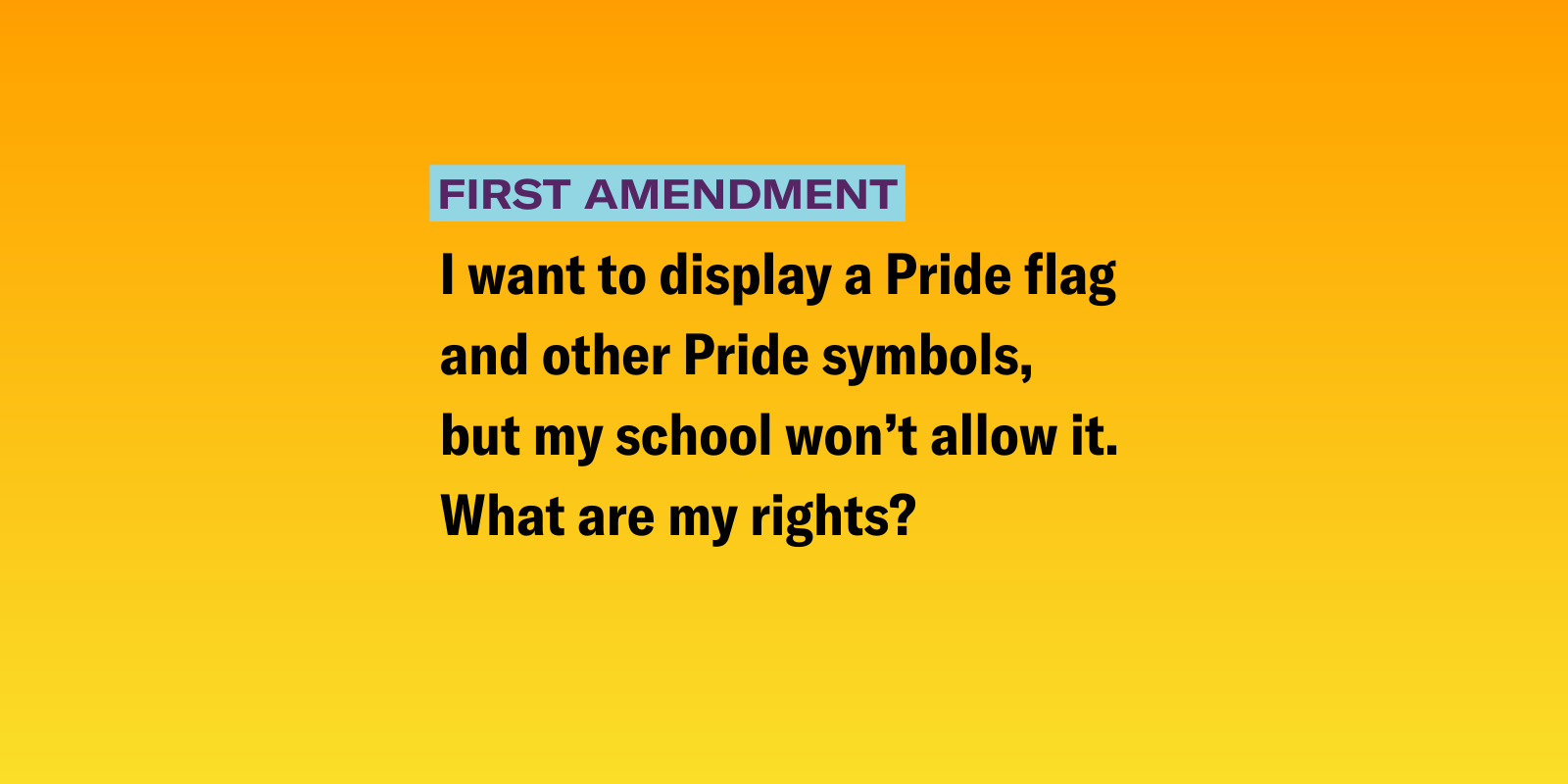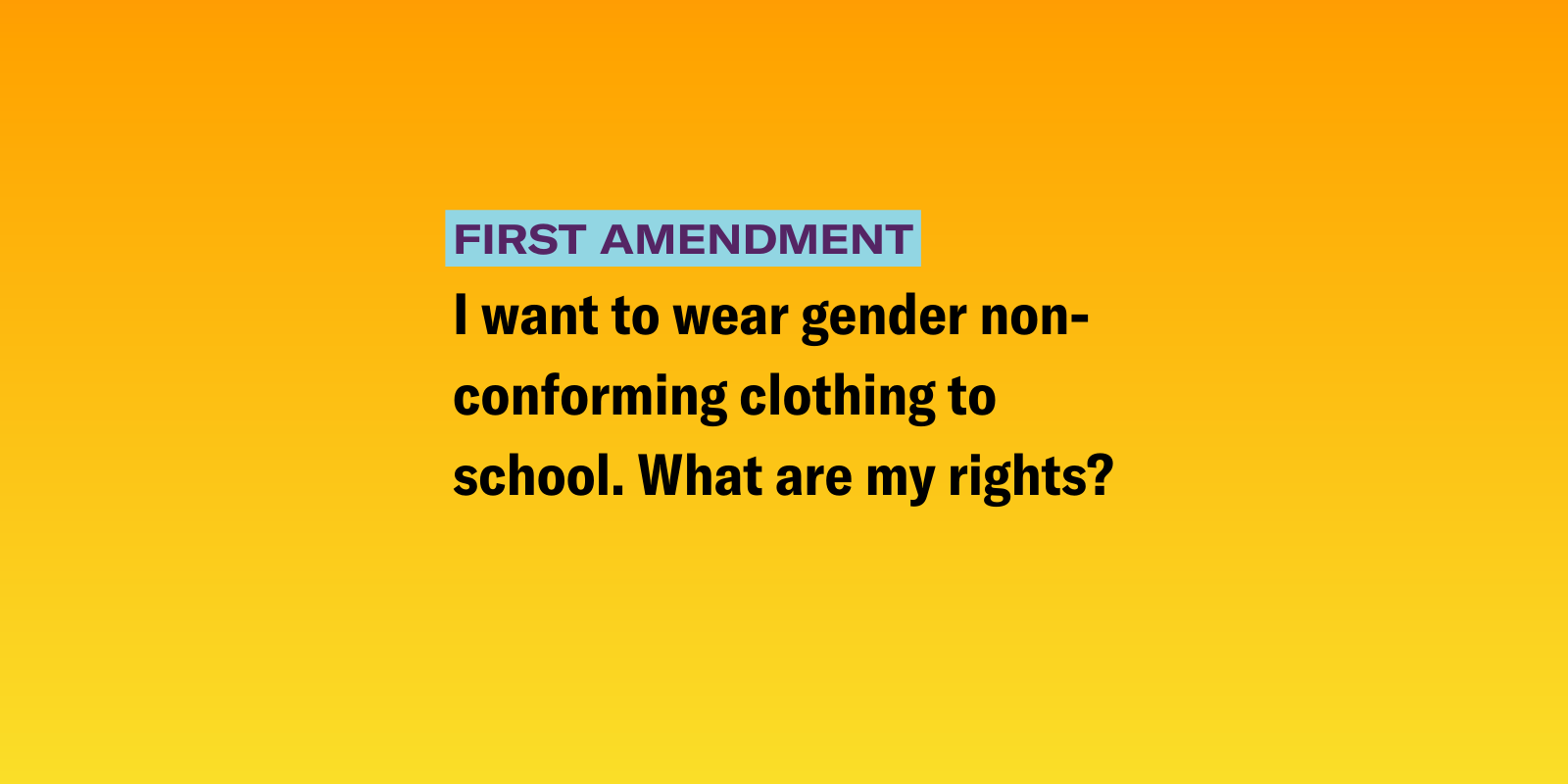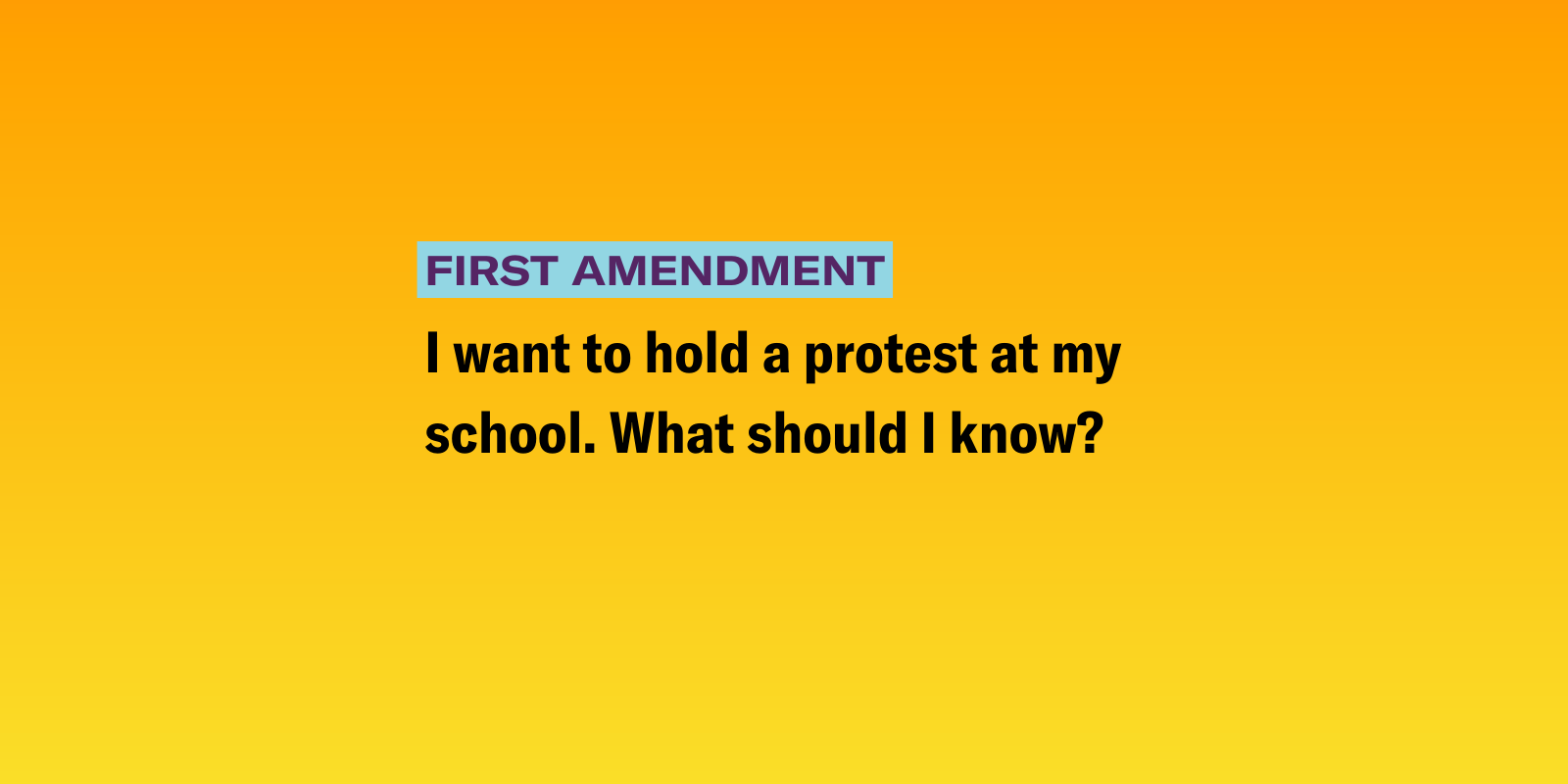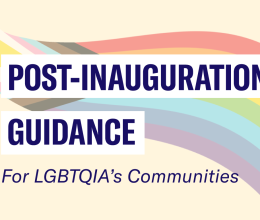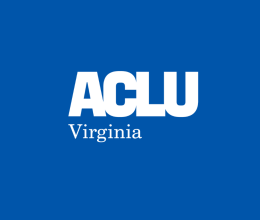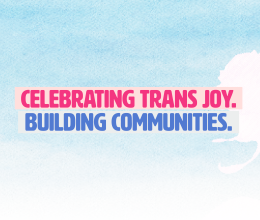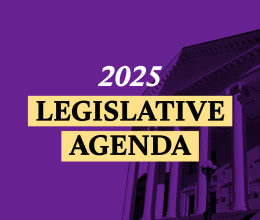Every student has the right to learn in an environment where they feel valued and can think for themselves. This fundamental promise of our democracy is under attack in Virginia. But you have the power to stop it.
Below are some frequently asked questions about students' rights in school, including topics such as bathroom access, sports team, affirming name & pronouns, Pride displays, and students' right to protest. Scroll for more information about your rights and what you can do to advocate for yourself and your peers.
Go back to the Student Advocacy Toolkit
KNOW YOUR RIGHTS FOR PARENTS, EDUCATORS, AND ALLIES, INCLUDING ACTIONS YOU CAN TAKE
